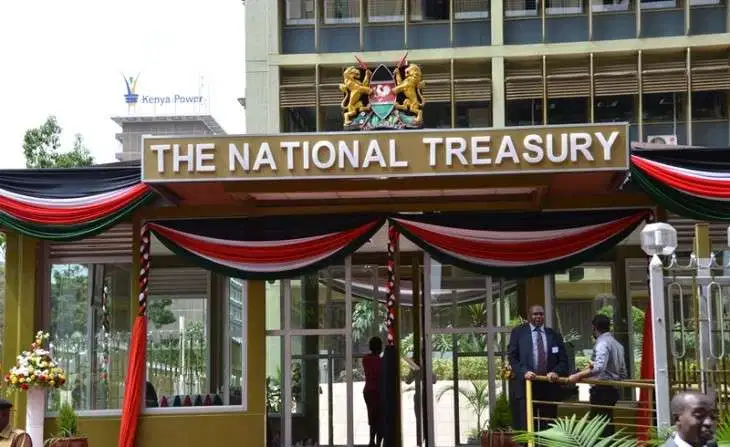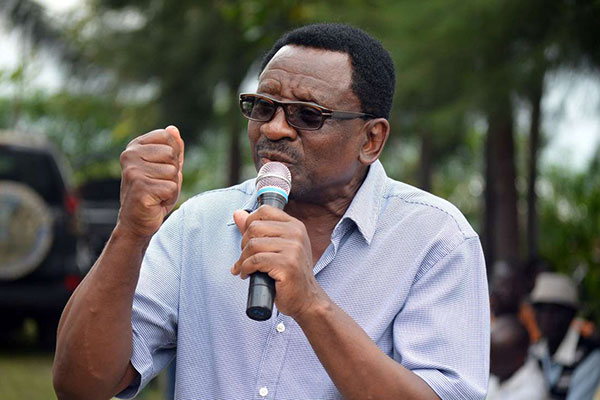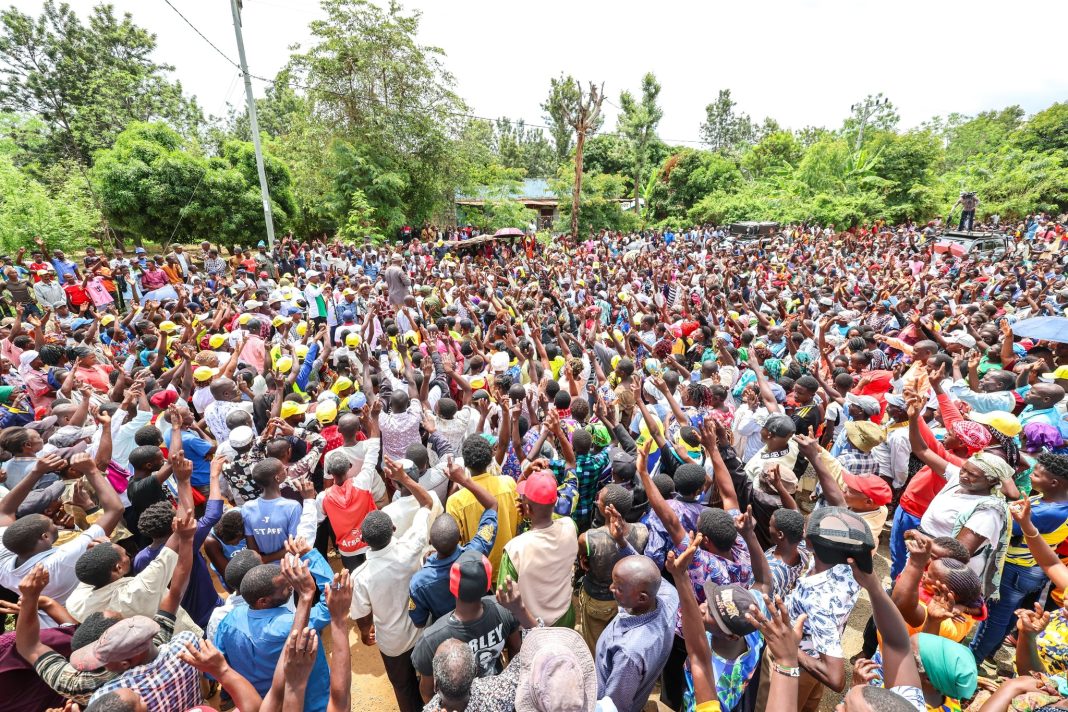Kenya’s Parliament has voiced concerns over the rising national debt, even as the Treasury reports significant savings from reduced borrowing at the Central Bank of Kenya (CBK).
Deputy Controller of Budget Stephen Masha told the National Assembly Committee on Debt and Privatization that reforms in financial management, including the rollout of the Single Treasury Account (STA) and automated government payment systems, have reduced CBK overdraft borrowing in the first quarter of the financial year from Sh1.9 billion last year to Sh700 million this year a 60 percent decline.
“These reforms have narrowed loopholes previously exploited by entities to divert funds after exchequer releases,” Masha explained. Automation now ensures funds allocated to ministries, counties, and agencies reach suppliers and contractors directly, reducing inefficiencies and idle balances.
Despite these achievements, MPs raised questions about the country’s overall debt trajectory. Committee chair Abdi Shurie noted that Kenya’s debt-to-GDP ratio continues to rise, contrary to government targets of reducing it to five percent. Kinangop MP Kwenya Thuku highlighted loans already signed but yet to be disbursed, which attract unnecessary commitment fees.
Masha acknowledged these challenges, urging clear budgeting for counterpart funding before signing loan agreements to avoid delays and wastage. The committee has requested a comprehensive report from the Controller of Budget on all loans currently incurring commitment fees or repayment obligations to ensure transparency and accountability.







[8712]mdrplay: Best Slot Online Philippines. Secure mdrplay login & register, download apk, and use our official link alternatif to play the top mdrplay slot online today. Experience mdrplay: the best slot online Philippines. Secure mdrplay login & register, mdrplay download apk, and official link alternatif for top slot games. visit: mdrplay
paypal casino uk
References:
matchup.id
online casino accepts paypal us
References:
aidesadomicile.ca
For your convenience, we’ve selected the best casinos that gathered the
most secure and recognized payment options in AU.
Not only are the BTC withdrawals speedy, but
the offers and promotions on the site will also make it worth your time, and may potentially increase
your chances of winning real money. We will provide you with the best Australian Bitcoin casinos
so that you can get to winning real money without the hassle of doing extensive research.
In the USA, despite the recently passed bill that legalizes
online gambling, some states also do not allow making gambling transactions using PayPal.
After making its debut in 2022, the brand has built a safe, regulated space for
Australian gamblers to wager and make real money. Thanks to its seamless payment integration, LeoVegas ensures
Aussie customers enjoy swift, reliable deposits and withdrawals.
In addition to Winshark’s impressive gaming lobby, the casino
boasts a sleek, mobile-responsive design that allows for seamless gameplay across your
different devices. Launched as recently as 2024,
Winshark is the latest casino to make our recommended list of casinos in Australia.
References:
https://blackcoin.co/things-you-should-not-do-while-playing-online-casinos/
With the casino bonus code no deposit, gamblers can get the
perk that offers free spins for the game Starstruck, which is a retro slot-themed game.
Who doesn’t love free cash and winning opportunities, especially when you are playing to
your heart’s desire in an online casino in Australia? No
deposit bonuses are usually free and granted upon registration with the casino.
Deposit-free bonuses are a way for casinos to attract more customers.
Yes, you can definitely win real money with a no deposit bonus.
Alternatively, it is ok to deposit real money and receive other, definitely more
rewarding kind of bonus, the match deposit, instead.
To learn more about promotions, visit our page
of casino bonuses for Australian players. Or if you’re playing for
real money, and there are few payment methods, the transaction times
need to be quick and exclude unnecessary fees. For instance,
if the bonuses for live games are weak, we check that the games offer excellent
winning opportunities. To confirm, take a look at our page focused on the best online casinos in Australia.
A live casino experience has an interactive factor that online gambling cannot replace — a
dealer that conducts the games.
References:
https://blackcoin.co/holdem-headsup-on-fifth-street/
Nach dem Absenden des Registrierungsformulars
erhalten die Nutzer eine Bestätigungs-E-Mail, um ihr Konto zu
verifizieren. Die Erstellung eines Kontos bei Dragon Money ist ein schneller
und einfacher Prozess. Kontinuierliche Updates und Kundensupport tragen dazu bei, hohe
Servicestandards aufrechtzuerhalten.
Je höher Ihr Level, desto mehr Vorteile erhalten Sie – darunter Cashback, exklusive Boni, persönliche Betreuung und Sonderaktionen. Dragon Casino verfügt über mehr als 3.000 Spiele, darunter Slots, Live-Casino, Tischspiele, Megaways, Crash Games und Sportwetten. Die Plattform ermöglicht das Setzen von Einzahlungslimits, Sitzungszeitbegrenzungen und bietet Selbstausschlussoptionen von 24 Stunden bis
zu 6 Monaten.
Dragon Money bietet eine Vielzahl von Zahlungsmethoden, um
schnelle und sichere Transaktionen für alle Spieler zu gewährleisten. Casino.guru sieht sich als eine unabhängige Informationsplattform über Online Casinos und Online Casinospiele, die von keinem Glücksspielanbieter oder irgendeiner anderen Instanz kontrolliert wird.
Durchsuchen Sie alle von Dragon Money Casino angebotenen Boni,
einschließlich jener Bonusangebote, bei denen Sie keine Einzahlung
vornehmen müssen, und durchstöbern Sie auch
alle Willkommensboni, die Sie bei Ihrer ersten Einzahlung erhalten werden. Im Allgemeinen handelt es sich hier um
ein gutes Casino, in dem man durchaus spielen kann, aber es
gibt einige Dinge, die es zu beachten gilt. Das Casino bietet Einzahlungslimits, Sitzungszeitbegrenzungen und Selbstausschlussoptionen.
References:
https://online-spielhallen.de/bruno-casino-erfahrungen-ein-umfassender-uberblick/